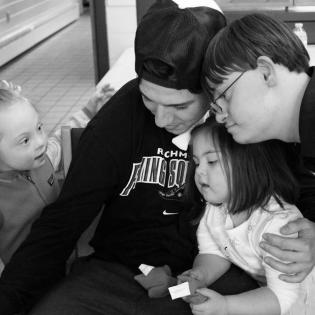This lesson helps students become more aware of their own values and sense of self by describing themselves and their choices.
Filter by subjects:
Filter by grades:
Filter by audience:
Filter by issue area:
Filter by content type:
Filter by resource type:
resource search
To help students understand how nonprofit organizations effectively address issues of poverty, food insecurity, immigration, and disenfranchisement locally and globally. To help students experience and understand how farming works.
Building a caring and inclusive classroom begins with an understanding of where students are at not just academically, but emotionally. Many students today have been exposed to experiences that affect their ability to regulate their emotions. By teaching children positive behavior and self-...
This lesson introduces the learner to some of the resources--individual, organizational (for profit and non profit), and governmental-- available to provide forewarning/alert, preparedness programs, as well as relief during and in the aftermath of natural disasters.
Every person has individual traits that make them unique and who they are. People with neurological or physical differences have often been seen as less capable or received services that separated them from others. Society is enriched when it embraces our differences as gifts and characteristics to understand and respect. Awareness can change attitudes, laws, and opportunities. Each young person has a voice, heart, and hands to take big and small actions to help us create a more inclusive world.
From history we know that working in community (not on our own) is the best way to make change. Young people explore the work of nonprofits related to equity and social justice.
Students will describe how local nonprofits help the community.
Youth explore the effects on themselves, the community, and the world if the government failed to provide U.S. children with an education.
Through exploration, we see how six simple machines do their jobs together to get work done. Just as each machine is unique and valuable to the whole, so is each person unique and valuable to our group, to nature, and to the world. We see the value of deliberately respecting others and...
